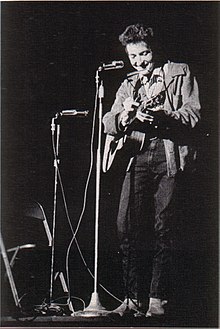By the end of 1963, Dylan felt both manipulated and constrained by the folk and protest movements. Accepting the "Tom Paine Award" from the National Emergency Civil Liberties Committee shortly after the assassination of John F. Kennedy, an intoxicated Dylan questioned the role of the committee, characterized the members as old and balding, and claimed to see something of himself and of every man in Kennedy's assassin, Lee Harvey Oswald.
Another Side of Bob Dylan, recorded in a single evening on June 9, 1964, had a lighter mood. The humorous Dylan reemerged on "I Shall Be Free No. 10" and "Motorpsycho Nightmare". "Spanish Harlem Incident" and "To Ramona" are passionate love songs, while "Black Crow Blues" and "I Don't Believe You (She Acts Like We Never Have Met)" suggest the rock and roll soon to dominate Dylan's music. "It Ain't Me Babe", on the surface a song about spurned love, has been described as a rejection of the role of political spokesman thrust upon him. His newest direction was signaled by two lengthy songs: the impressionistic "Chimes of Freedom", which sets social commentary against a metaphorical landscape in a style characterized by Allen Ginsberg as "chains of flashing images," and "My Back Pages", which attacks the simplistic and arch seriousness of his own earlier topical songs and seems to predict the backlash he was about to encounter from his former champions as he took a new direction.
In the latter half of 1964 and into 1965, Dylan moved from folk songwriter to folk-rock pop-music star.

Niciun comentariu:
Trimiteți un comentariu